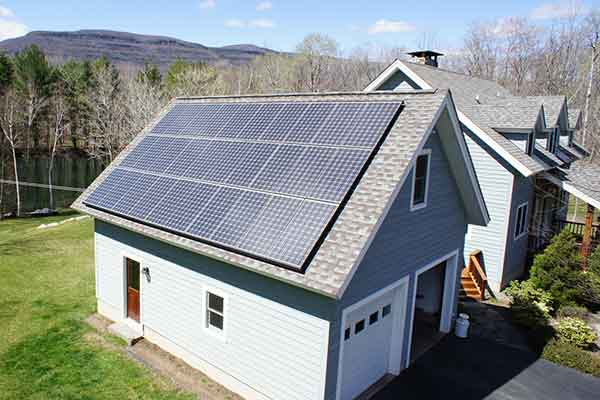Going “off-grid” is a system and lifestyle designed to help people function without the support of infrastructures, such as an electrical grid. In electricity, off-grid can be stand-alone power system or micro-grids typically to provide a smaller community with electricity.
Many homeowners want to go off-grid and be truly energy independent. In order to achieve this, they would have to install an energy or power storage system (batteries) to store energy for use at night or when the solar panels can’t produce power.
Although it is possible to have an off-grid solar panel system with batteries, these systems cost more than solar installs without batteries and have more limitations.
Will batteries increase the cost of my solar panel system?
Depending on the size of your solar panel system, adding batteries can increase the cost by thousands of dollars.
If your solar panel system doesn’t have batteries and is connected to the power grid, then you can sell excess power to the grid and get power at night or during cloudy weather, by pulling directly from the grid.
If—on the other hand—your home is completely off-grid, you might also need a generator if it is important to always have sufficient power. Otherwise, you might run out of electricity when there are several cloudy days in a row.
If your home is off-grid, installing a solar panel system with batteries might be the best overall option for extending the power grid can be very expensive in some cases.
Having an off-grid home is beneficial in its own way, and means you will not need to pay the delivery fee assessed by utility providers, resulting in monthly savings.
Battery technology is—however—advancing, as prices drop and capabilities increase. What might be prohibitively expensive today may not be in several years.
The Tesla Powerwall has also boosted public interest and demand for solar storage technologies as it gained significant media coverage.
How will living off-grid impact my lifestyle?
If you are not connected to the power grid, then you need to be more mindful of your energy use. If your household consumes more energy than usual or there is cloudy weather, your batteries can become discharged.
Some solar shoppers decide to install grid-tied solar systems with battery backup. This means the home is connected to the power grid but also has batteries for emergency power.
The home will still have power during grid outages, but they don’t need to be as watchful of their home energy consumption and their solar batteries levels.












Comments